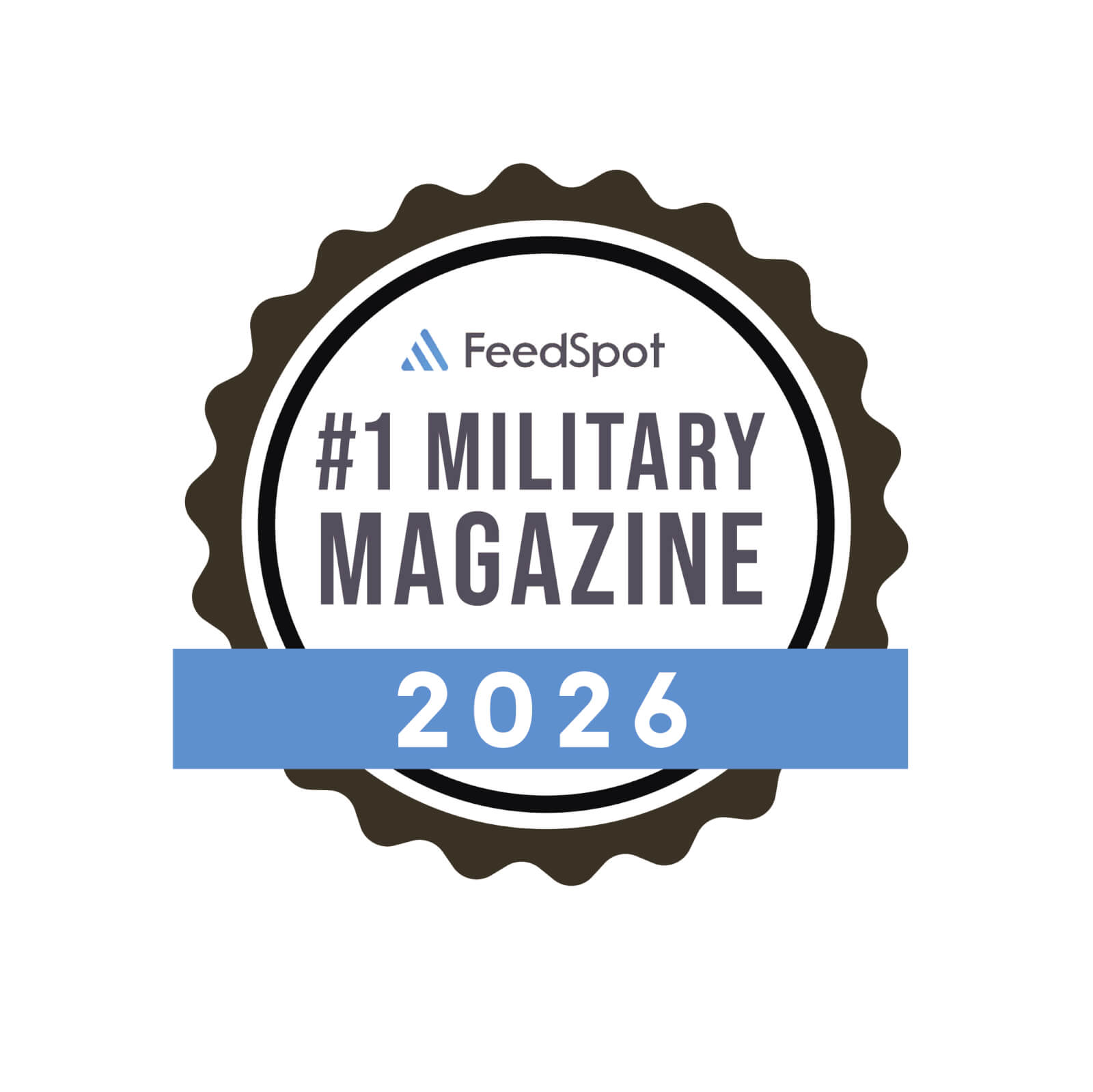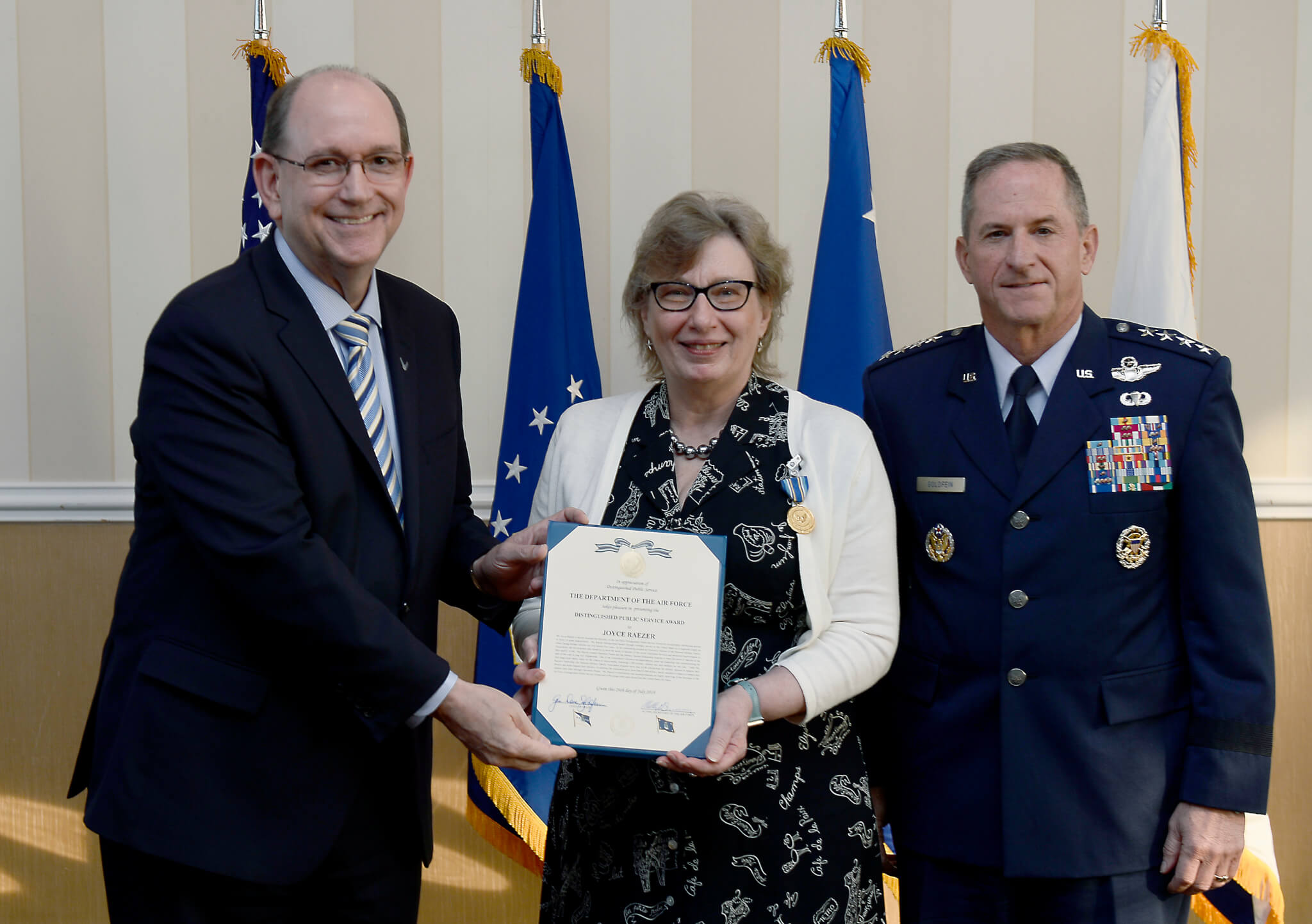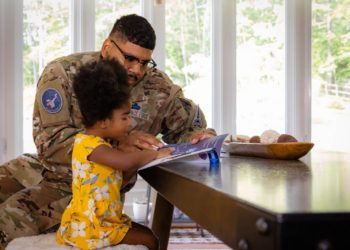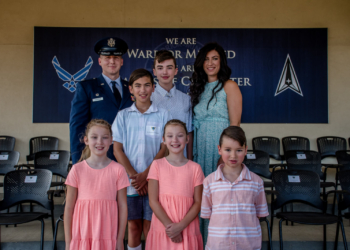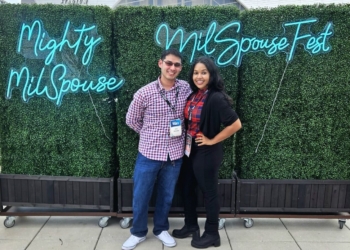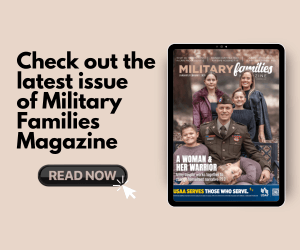The name Joyce Raezer has been synonymous with the National Military Family Association for over 20 years. As she prepares to retire the title of executive director, the Maryland-native takes a look back at her first introductions to military life and her longtime fight for those attached it.
Career-driven spouses were somewhat of an anomaly in the 1980s, Raezer said. She earned a Bachelor of Arts degree in History from Gettysburg College, where she met her husband Tim, then went on to graduate school at the University of Virginia. She had clear ambitions and recalls feeling like the odd woman out when talking about work at her first spouse gathering.
“It wasn’t long after we were married and we were stationed in the DC-area, so I was still commuting to Charlottesville to UVA, but I got invited to my first wives’ coffee. There were moms and older spouses of retired folks, and they’re asking, ‘Joyce, what do you do?’ and I’m talking about traveling to teach a seminar on business history and you could just see the glazed looks,” she said. “So, my first encounter with the Army — on the family side — was they don’t really know what to do with spouses who have career goals.”
Military family support in its infancy

During the early years of her marriage, Raezer describes war and deployments as an “oddity” in the Army, and so was a model for family readiness.
“I remember when we were at Fort Ord (California) … this was when the UN and the US agreed to send peacekeepers into the Sinai for the first time. … So, this was a big deal,” she explained. “This was a huge deal for the post, for the families, for the family support system and because it was so unusual — and it was the first chance to do it right — the families of every deployed soldier out of Fort Ord got a red card.”
The card was used to “open doors” when deployed families faced issues, like getting a medical appointment on the installation. It wasn’t a sustainable system, but it did signal the realization that specialized support was needed for those left behind on the homefront.
An advocate is born
As her family became more embedded in military life through PCS moves, Raezer realized she would have to abandon her dissertation because it was just too difficult to sustain. She sought to find her own sense of purpose outside of the dependent role.
“I really struggled with how do I fit? How do I fit as an educated female, and not just as a military spouse, but how do I fit as Joyce in this lifestyle?” she said.
Her next best fit came when the family received orders to Fort Knox, Kentucky, where she engaged on education issues and served on the school board. It would also be the moment her life intersected with NMFA.
“My advocate voice came out there,” she said.
Leading a top military support group in a Post-9/11 era
Raezer volunteered in 1995 for NMFA’s government relations department focusing on childhood education and base schools. Three years later, she became a permanent staff member and eventually evolved to status as executive director. She says she knew her voice could be used most effectively here because of the reputation built by her predecessors.
“Because the women who were NMFA strove to get their facts in order, come up with credible positions — well-thought out positions — if there was a family issue, they (NMFA) were listened to,” she said.

Her initial priorities were to provide the organization with leadership stability, while addressing the reality that the U.S. military was not involved in a short war.
“I knew we needed to take a step back (as an organization) and figure out what we needed to do for the long-term,” Raezer said. “We put together programs, our organizational structure, the same surge capacity as the government, but we were running on adrenaline.”
Her team evaluated how their efforts could best be applied in an arena of ongoing conflict, and they determined it would be to focus on current-serving from all components, their families, and survivors of fallen service members. The work opened her eyes to the strength of the community.

“It’s taught me that they (military families) are incredibly more resilient than I would think anyone could ever be in some of the situations they are dealing with, but also under challenges that evolve over the life of that family; they evolve over the changing of the mission,” she said. “I also learned that they are just like every other American family that wants the best for their kids.
As Raezer prepares to pass the proverbial torch, she leaves with an incredible pride.
“Overall, I’m most proud that NMFA remains relevant and credible and sought after as a resource by people who want to do the right things for military families. I think I can also point to certain legislation that wouldn’t have happened without us, that has benefitted millions of families over the years,” she said. “Individually I’m most proud of WIC overseas because that was a struggle.”
What’s next
Raezer jokes that she has given little thought to retirement planning, instead she wants to use the time to discover “what does she want to be when she grows up.” The one firm plan goes something like hopping in a car, being a free spirit and traveling. She also hopes to continue supporting military families in some way.
And for those spouses who can relate to the young Army wife seeking her own identity, she offers the following advice.
“You’re probably not going to be able to figure it out all alone. People like you are out there and so get involved in something that appeals to your passion — and it doesn’t have to be military related. Your passion could be the environment or writing a symphony, or whatever. Don’t try to do it alone. Find things that will expose your passions,” she added.

